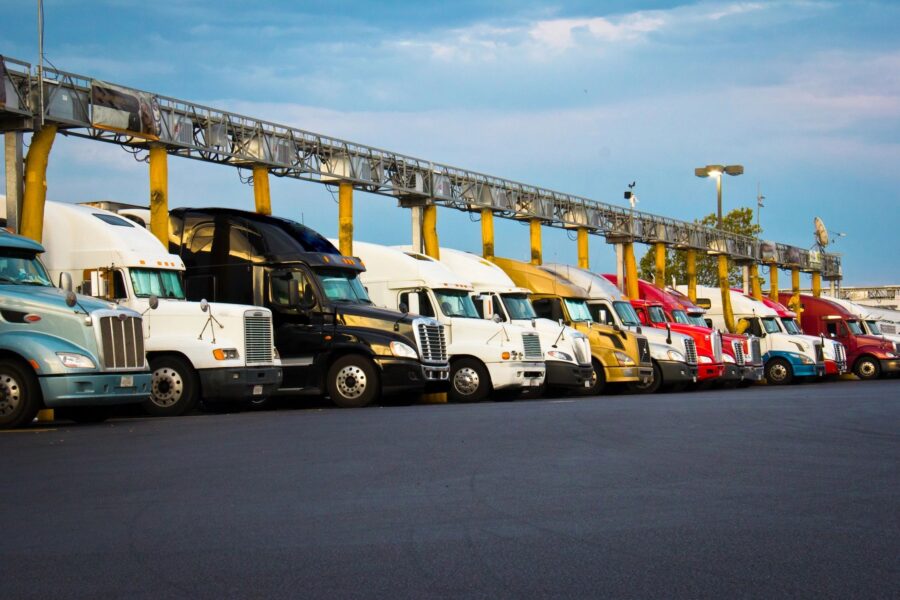Is the Business-to-Business Exemption a Viable Option for Trucking Companies Using Owner-Operators?
California’s Assembly Bill 5 (AB5) and the ABC test codified under Labor Code section 2775 have significantly reshaped the legal landscape for the trucking industry. The ABC test presumes that a worker is an employee unless the hiring entity can meet three strict criteria. This presumption has raised serious concerns for trucking companies accustomed to using owner-operators (independent contractors) rather than company drivers (employees). Many transportation executives are now wondering:
Is the business-to-business exemption under Labor Code section 2776 a workable solution for maintaining independent contractor relationships?
The ABC Test and Its Impact
Under AB5, the ABC test is applied to determine whether a worker is an independent contractor or an employee. To classify a worker as an independent contractor, the hiring entity must prove that:
- Prong A: The worker free is from the control and direction of the hiring entity in the performance of the work, both under the contract for the performance of the work and in fact.
- Prong B: The worker performs work that is outside the usual course of the hiring entity’s business.
- Prong C: The worker is customarily engaged in an independently established trade, occupation, or business of the same nature as the work performed for the hiring entity.
For many trucking companies, satisfying Prong B of this test—demonstrating that an owner-operator’s work is outside the usual course of the company’s business—poses the greatest challenge. Trucking companies are, by definition, in the business of transportation, and so are the independent contractors they often engage.
As the court observed in Cal. Trucking Ass’n v. Becerra, 433 F. Supp. 3d 1154, 1165 (S.D. Cal. 2020), “the ABC test appears to be rigged in such a way that a motor carrier cannot contract with independent contractor owner-operators without classifying them as employees.” (Id., fn 9, emphasis added)
This difficulty has prompted companies to explore alternative legal options other than transitioning their entire CDL driver workforce from owner-operators to company drivers (see our previous article entitled, The California Trucking Industry and Owner-Operators). One alternative is the business-to-business exemption provided under Labor Code section 2776.
What Is the Business-to-Business (B2B) Exemption?
Labor Code section 2776 carves out a narrow exemption to the ABC test for certain business relationships where two legitimate businesses contract with each other for services. Specifically, Section 2776(a) states:
“If an individual acting as a sole proprietor, or a business entity formed as a partnership, limited liability company, limited liability partnership, or corporation (“business service provider”) contracts to provide services to another such business or to a public agency or quasi-public corporation (“contracting business”), the determination of employee or independent contractor status of the business services provider shall be governed by Borello, if the contracting business demonstrates that all of the following criteria are satisfied:”
In other words, if a trucking company can satisfy the criteria required for the B2B exemption, the company can avoid the use of the ABC test for the determination of the owner-operator’s classification as an employee or independent contractor. This is critically important because the nature of the relationship between the trucking company and the owner-operator makes it all but impossible to satisfy the ABC test.
Unlike the ABC test — in which the inability of the trucking company to demonstrate any part of the three-part test means that the owner-operator is not an independent contractor — under the Borello test, no single factor determines whether a worker is an employee or an independent contractor.
Qualifying for the Business-to-Business Exemption
There are 12 criteria that must be satisfied for the business-to-business exemption to apply and avoid the ABC test. For your convenience, we have summarized the requisite criteria as follows:
- The owner-operator must be free from the control and direction of the trucking company;
- The owner-operator must provide services directly to the trucking company, rather than to customers of the trucking company.
- The owner-operator must be customarily engaged in an independently established business of the same nature as the work performed.
- The owner-operator must maintain a separate business location from the trucking company.
- The owner-operator must have all necessary licenses, permits, or registrations required by their work.
- The owner-operator must set their own hours, provide their own tools, and negotiate their own rates.
- Both parties must comply with other applicable labor laws, including wage and hour rules.
If a trucking company can satisfy the 12 criteria for the business-to-business exemption, it must then be prepared to support its independent contractor classification of the owner-operator under the Borello test.
The Borello Test
The California Supreme Court established the Borello test in S.G. Borello & Sons, Inc. v. Dept. of Industrial Relations (1989) 48 Cal.3d 341. The test relies upon multiple factors, including whether the potential employer has all necessary control over the manner and means of accomplishing the result desired, although such control need not be direct, actually exercised or detailed.
The “principal test of an employment relationship is whether the person to whom service is rendered has the right to control the manner and means of accomplishing the result desired.” (Tieberg v. Unemployment Insurance Appeals Board (1970) 2 Cal.3d 943) In other words, the most significant question is how much control a trucking company has over the owner-operator. The more control exerted over the owner-operator, the more likely it is that the owner-operator is an employee. The less control, the less likely it is that the owner-operator is an employee. Each of the following factors is in addition to the “control” test, which is given considerable weight, and no single factor is determinative:
- Whether the worker performing services holds themselves out as being engaged in an occupation or business distinct from that of the employer;
- Whether the work is a regular or integral part of the employer’s business;
- Whether the employer or the worker supplies the instrumentalities, tools, and the place for the worker doing the work;
- Whether the worker has invested in the business, such as in the equipment or materials required by their task;
- Whether the service provided requires a special skill;
- The kind of occupation, and whether the work is usually done under the direction of the employer or by a specialist without supervision;
- The worker’s opportunity for profit or loss depending on their managerial skill;
- The length of time for which the services are to be performed;
- The degree of permanence of the working relationship;
- The method of payment, whether by time or by the job;
- Whether the worker hires their own employees;
- Whether the employer has a right to fire at will or whether a termination gives rise to an action for breach of contract; and
- Whether or not the worker and the potential employer believe they are creating an employer-employee relationship (this may be relevant, but the legal determination of employment status is not based on whether the parties believe they have an employer-employee relationship).
Is the Business-to-Business Exemption a Viable Option?
On paper, the business-to-business exemption seems like a potential solution for trucking companies that want to continue using owner-operators. However, there are critical factors that must be considered:
- Control and Direction: Trucking companies must relinquish any significant control over how owner-operators perform their work. This includes giving contractors the freedom to choose their own routes, schedules, and methods of performing deliveries. Any degree of micromanagement could undermine the exemption.
- Business-to-Business Relationship: To qualify for the exemption, trucking companies need to ensure they are contracting with genuine, independent businesses, not merely individuals who do not operate as separate legal entities. The owner-operator must maintain their own business presence, pay for their own equipment, and engage in an established, independent business outside of their relationship with the trucking company.
- Direct Service Requirement: The business-to-business exemption requires that services be provided directly to the hiring entity, not to its customers. This provision could be tricky for trucking companies that require drivers to deliver goods directly to customers on behalf of the company. This contractual arrangement must be carefully structured to avoid violating this requirement.
- Wage and Hour Compliance: Even if a trucking company can establish a valid business-to-business relationship, it must still ensure full compliance with California’s wage and hour laws. This means owner-operators should be treated separately from company drivers and other employees and must not be subjected to employee-like rules, especially when it comes to hours, pay, and benefits.
Practical Steps for Trucking Companies
To maximize the chances of successfully using the business-to-business exemption, trucking companies should consider the following steps:
- Formalize Business Relationships: Encourage owner-operators to formalize their independent contractor status by incorporating or establishing limited liability companies (LLCs) and acquiring any necessary licenses or permits.
- Review Contracts: Carefully review and revise contracts with owner-operators to ensure they meet all the exemption criteria under Labor Code section 2776. Contracts should explicitly state that the contractor has control over how work is performed, including the ability to negotiate rates and set schedules.
- Audit Compliance: Perform regular audits to ensure that owner-operators are truly independent. This includes verifying that they have separate business addresses, maintain their own equipment, and offer services to other businesses, not just your trucking company.
- Seek Legal Advice: Given the complexity and potential consequences of misclassification, it’s crucial to consult with legal experts familiar with AB5, the ABC test, and the business-to-business exemption. A small oversight could result in substantial fines and penalties, as well as costly misclassification lawsuits.
Conclusion
The business-to-business exemption under Labor Code section 2776 offers a potential path for trucking companies seeking to maintain relationships with owner-operators. However, it requires careful planning, strict adherence to the exemption criteria, and ongoing compliance with California’s labor laws. By taking proactive measures to formalize these relationships, trucking executives can reduce the risks associated with misclassification and continue to utilize independent contractors where feasible.
While the exemption may work for some companies, each situation is unique. Trucking companies should closely evaluate whether the business-to-business exemption is a viable option for their operations and seek legal counsel to navigate the intricacies of California’s employment laws and regulations.




